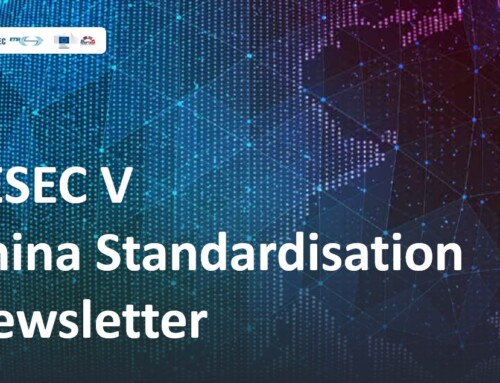On March 18, 2024, the State Administration for Market Regulation (SAMR), in conjunction with 17 other national ministries, unveiled the “Action Plan of Implementing National Standardization Development Outline (2024-2025)” (referred to as “the Action Plan 2024-2025” as below).
The National Standardization Development Outline (referred to as the “Outline”), introduced by the State Council in 2021, was followed by an Action Plan in the subsequent year, aimed at supporting the objectives and goals outlined in the Outline. The Action Plan 2024-2025 serves as a sequel to the initial Action Plan, representing a second-round initiative to further actualize the principles and tasks delineated in the Outline, thereby holding significant importance.
Comprising eight chapters encompassing 35 detailed articles, each assigning main responsibilities to relevant regulatory bodies, the Action Plan 2024-2025 delineates key areas of focus:
- Enhanced Synergy between Standardization and Technological Innovations: Prioritizing standard breakthroughs in pivotal sectors such as integrated circuits, semiconductors, AI, etc., and aligning major national scientific and technological achievements with standards to expedite standardization processes and outcomes from corresponding technological advancements. Additionally, accelerating standardization research in emerging technologies like metaverse and next-generation internet is emphasized.
- Modernization of the Standardization Sector: Streamlining basic standard systems in key industrial sectors, integrating emerging technologies with traditional sectors, and emphasizing standards that enhance the industrial chain, sector innovation, and infrastructure construction. Standard criteria for regular products and services, particularly in terms of safety and energy efficiency, are to be bolstered to spur consumer consumption while optimizing safety and quality.
- Optimization of Standardization Support for Green Development: Revising standards systems to advance carbon peak and neutrality, ecological environment protection, resource conservation, and support green and low-carbon transitions.
- Advancement of Standardization in Rural and Urban Construction and Social Governance: Developing and optimizing standard systems to support rural revitalization, new urbanization, and enhance administrative management, social governance, public service delivery, elder care, and public security.
- Heightened Emphasis on International Standardization: Expanding international standardization cooperation with organizations such as WTO, BRICS, and APEC, and encouraging state-owned enterprises to deepen standardization cooperation in overseas projects. Active participation in international standards development organizations (SDOs) including ISO, IEC, CAC, and WOAH, with a focus on topics such as carbon neutrality, digital technologies, GHG emission reduction, and green finance, is prioritized. The adoption of international standards is to be increased significantly, aiming for a resemblance of TC structure of over 90% compared to international SDOs, and a conversion rate of international standards of over 85%.
- Deepening Standardization Reform and Innovation: Enhancing standard supply and management levels, and strengthening standard training and implementation supervision.
- Building a Solid Foundation for Standardization Development: Optimizing the standardization foundation through basic theoretical research, standard experimentation and verification, personnel training, and the establishment of professional technical institutions.
- Implementation: Strengthening the current standard management system at all levels of government and providing policy support to streamline standard working processes, statistical work, and recognition of outstanding personnel and achievements.
To summarize, China underscores the paramount importance of standardization for its economic development and transition towards green and intelligent practices. The articles within the Action Plan 2024-2025 align closely with the country’s recent development policies and objectives, underscoring its pivotal role. Efforts are geared towards enhancing the efficacy and functionality of standardization while expanding international influence.




